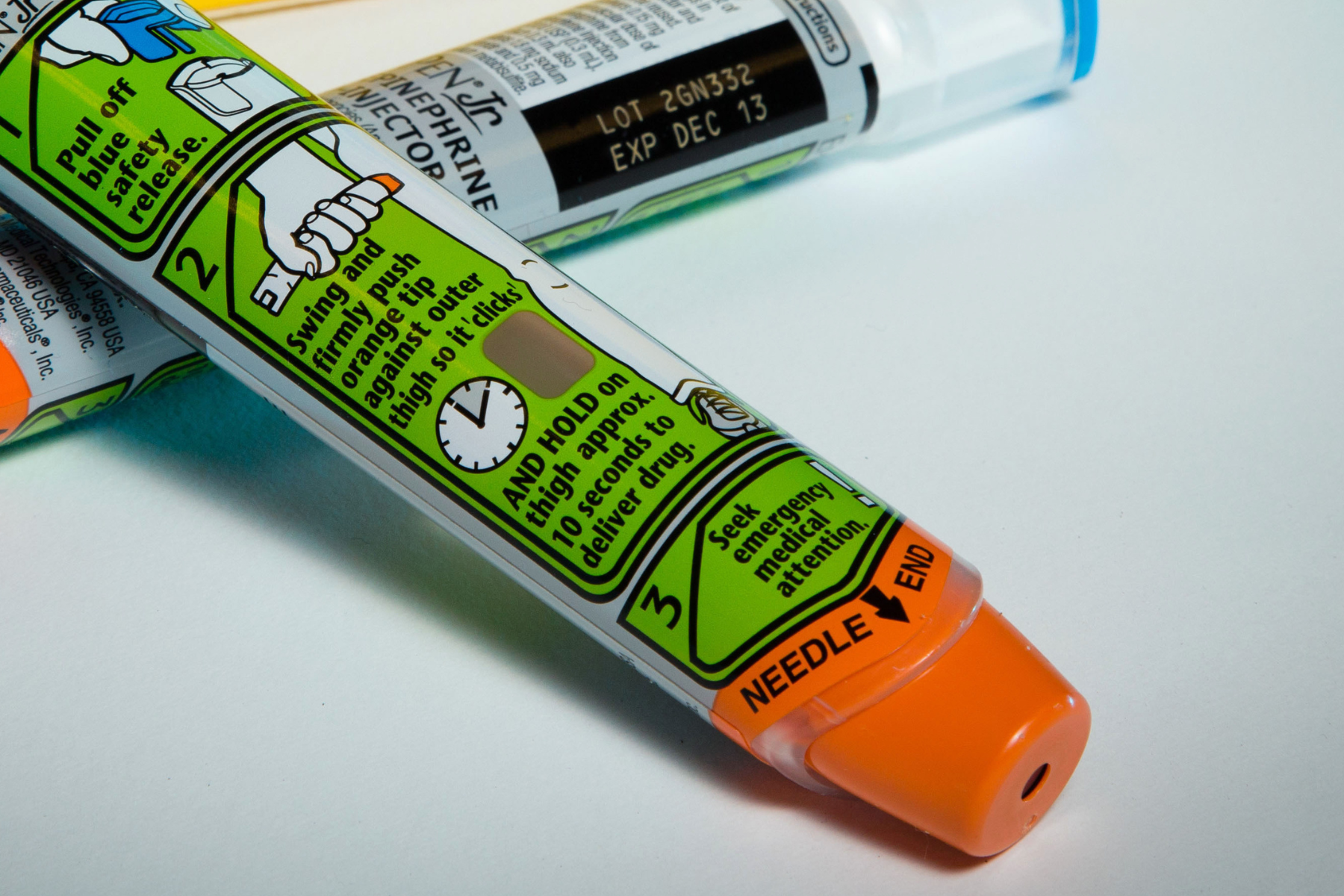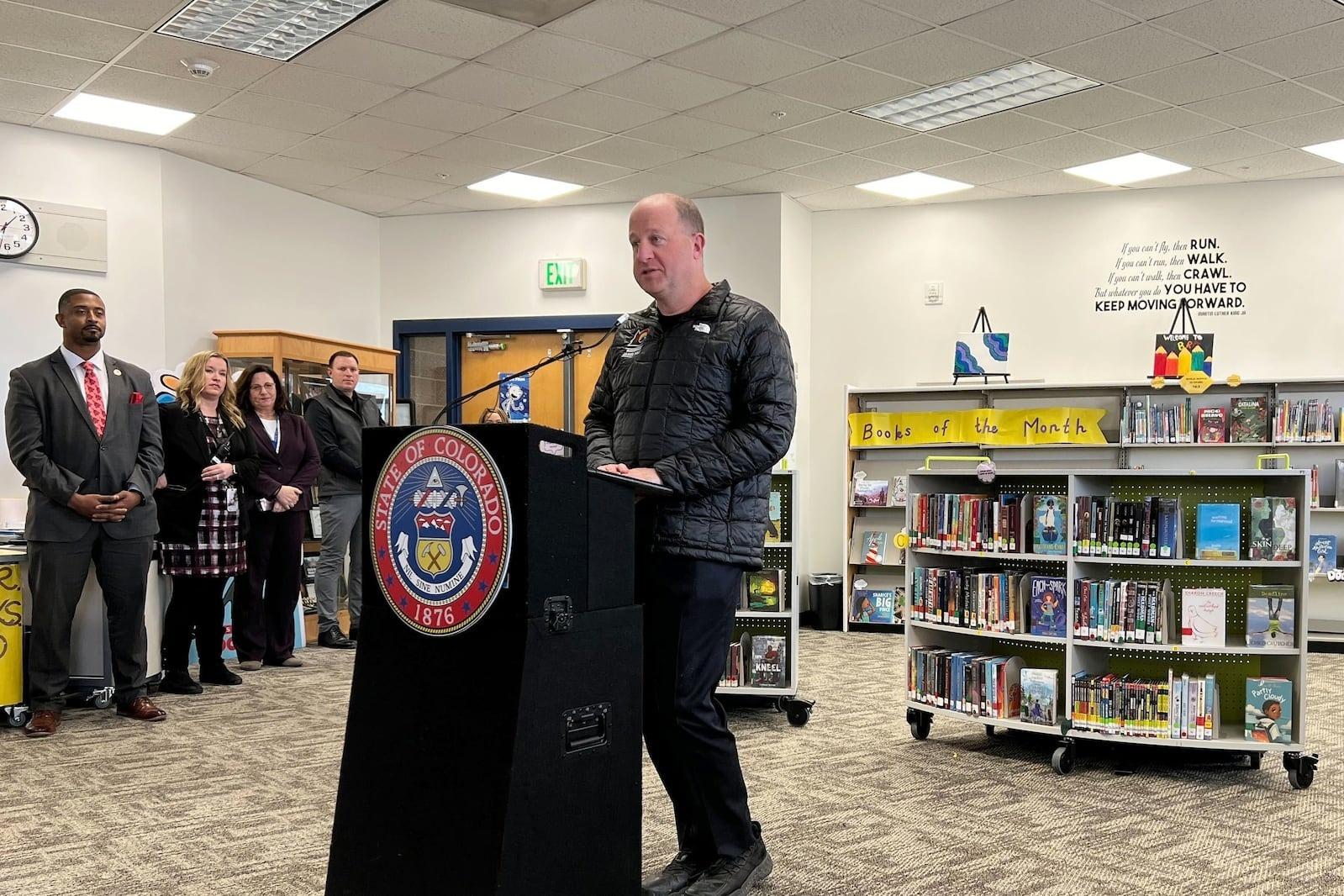
A pharmaceutical corporation sued Colorado Friday in federal court aiming to bring a halt to a law approved in 2023, which the New Jersey-based company said makes it provide generic allergy pens to pharmacies for free.
Amneal Pharmaceuticals argues in its complaint that the law has resulted in an “ongoing, unconstitutional taking” of its auto-injectors by the state as part of its efforts to make the pens affordable.
Democratic lawmakers proposed the change in an effort to bring down the costs paid by state residents for epinephrine autoinjectors, perhaps best known by the brand called EpiPen, made by Viatris. The single-use, spring-loaded syringes can give a dose of a hormone called epinephrine, also known as adrenaline, to treat life-threatening, allergic emergencies.
Amneal makes Adrenaclick, its generic version of the auto-injector, which generally comes in packs of two. It costs more than $100 without insurance. A pack of EpiPens can cost upwards of $600.
Under Colorado’s affordability program any time an eligible uninsured Coloradan acquires an auto-injector from a pharmacy in the state, “Amneal must send the pharmacy a free replacement,” according to the suit. It said the company’s only alternative is to reimburse the pharmacy the full price it paid for the device, which “will almost always be more than what Amneal could make selling the product to a wholesaler.”
Amneal said it received its first replacement request from a Colorado pharmacy in April. As of September, it said it had sent 304 auto-injectors to Colorado pharmacies that requested free replacements.
The company risked tens of thousands in fines and potential “treble damages” under the Colorado Consumer Protection Act if it didn’t provide the free auto-injectors, the suit claimed.
Amneal said it was seeking a permanent injunction, a halt to the reimbursement or resupply of the auto-injectors in the affordability program, and a judgment that the requirement violates the takings clause of the Fifth Amendment of the U.S. Constitution.
The Attorney General’s office had no comment.
The law, which went into effect at the start of this year, let uninsured people purchase the auto-injectors for no more than $60 per two-pack; it capped out-of-pocket costs for the insured at $60 per two-pack.
Sponsors of the bill said the push was in response to a big hike in the retail costs of Epipens — from $60 in 2007 to more than $600 in 2016. Generic versions are available for less.
Many can get auto-injectors for free or at low cost through insurance, but others have to pay full price.
Majority Democrats said the legislation would help the more than 500,000 Coloradans experiencing severe food allergies and more than 430,000 Coloradans with asthma, “get low-cost access to the emergency medication they need.”
“The cost of producing it has remained the same, so Coloradans shouldn't be subject to that sort of price gouging,” said Rep. Javier Mabrey, a Democratic lawmaker from Denver, when the bill was introduced.
The high cost of auto-injectors has been a contentious national political and business issue in recent years, sparking Congressional criticism and a $465 million settlement between the maker of the EpiPen and the U.S. Justice Department.









